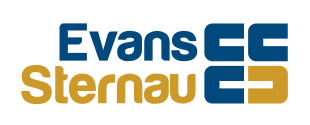BUSINESS SERVICES
Advisory Services and Tax Preparation for Businesses
Tap our personalized business tax advisory and preparation services to take the guesswork out of your corporate tax strategy and align it with business and regulatory compliance goals while seizing opportunities to lower liabilities.
Why Professional Tax Help Matters
Why Your Business Needs Professional Tax Advisory
Professional tax and business advisory services are crucial for founders seeking to navigate the complex and ever-dynamic tax landscape with confidence. Whether a small or big business owner, your venture might find it worthwhile to work with Evans Sternau CPAs due to the following reasons:
1. Minimizing Tax Liabilities
Qualified tax advisors can help your startup execute strategic tax planning to minimize overall liabilities and maximize savings by capitalizing on eligible credits and deductions. This includes business-centric tax breaks like the QBI deduction, which lowers the taxpayer’s adjusted gross income by allowing a deduction of up to 20% of their qualified business income.
2. Risk Management
Our experts have the knowledge and experience to implement proactive risk management and compliance strategies that save businesses from costly legal hurdles and penalties. By working with experts like us, you can tap valuable insights into regulatory obligations and implement internal control and risk evaluation processes to avoid unnecessary audits by the IRS.
3. Time Savings
In addition to preparing and filing your returns on time, business tax experts can implement systems for ongoing financial management to ensure your tax preparation and reporting processes are smoother in the future. Moreover, they can leverage advanced tools like tax preparation software to automate manual and repetitive tasks, saving you time and money.
4. Knowledgeable Professionals
Tax advisors are knowledgeable professionals with an in-depth understanding of local, federal, and international tax systems. They keep abreast of the ever-changing tax regulations to help you handle complex financial situations swiftly and ensure you’re well-equipped to outsmart the competition.
5. Tailored Strategies
Tax experts at reputable firms like Evans Sternau CPA understand that every business is unique and might require a different approach to achieve its overarching goals. These professionals can help create customized strategies for your startup to optimize its operational flexibility and recommend a suitable business structure that matches your tax needs and goals.
6. Proactive Planning
You might also want to work with qualified CPA business tax advisors if you’re going to safeguard your startup’s financial well-being, which is the backbone of any thriving venture. CPA experts can assist you in budgeting, forecasting, and managing cash flow to proactively plan your business’s future and prepare it for upcoming opportunities and unforeseen challenges.
7. Ongoing Support
Ambitious businesses need more than just an annual tax preparer. They require ongoing tax advisory services to help them stay up-to-date with the latest tax reforms, review financial decisions in real time, and make adjustments as much as needed. Year-round support also positions business owners to seize opportunities that might otherwise be missed in case of sudden legislative changes.
Tax advisory and preparation services are crucial for businesses as they help navigate the complex and ever-changing tax landscape.
Proper tax planning can significantly impact a company’s bottom line by minimizing tax liabilities, ensuring compliance with regulations, and identifying potential deductions and credits that may otherwise be overlooked.
Working with a CPA brings additional advantages to the process.
CPAs possess specialized knowledge of tax laws and regulations, enabling them to provide strategic insights tailored to a business’s unique financial situation. Their expertise can help identify tax-saving opportunities and develop proactive strategies that align with the company’s overall goals.
Tax Advisory Steps
Business Tax Advisory Process
1. Comprehensive info collection
2. Tax savings review and analysis
3. Tax strategy implementation
4. Annual review & maintenance
5. On-demand strategy update
6. Ongoing advisory support
Tax-Driven Growth
How Personalized Tax Strategies Drive Growth
While it might be tempting to overlook the importance of personalized tax strategies as a startup founder, aligning tax planning with business goals has proven effective in enabling sustainable growth. Here is how customized strategies drive growth and help you take your business to unprecedented heights:

Improved Efficiency
Personalized strategies created by tax and business advisory experts may include expanding automation capabilities to improve inefficiencies, minimize errors, and bolster overall productivity. In addition to saving time, improved efficiency in financial management allows founders to allocate more resources to high-value operations, ultimately leading to business growth.
Enhanced Client Services
Customized tax strategies relieve business owners from the hassle of juggling managerial tasks with tedious yet important financial management duties. By delegating tax planning, management, filing, and preparation duties to a trusted business tax advisory firm, founders can focus on delivering exceptional customer service and promoting sustainable growth.
Service Options
Ongoing Services Packages
Evans Sternau CPAs offer a range of services under multiple flexible plans, allowing you to meet your current and future financial needs simultaneously. Our proactive business advisory services pricing models include three support plans: Essential, Premium, and Concierge.
On-Call Tax Consulting
Annual Tax Planning
Tax
Projections
Tax Advisory
On-call tax consulting
Annual tax planning meeting
Annual tax projection
Quarterly tax projections
Essential
- On-call tax consulting
Premium
- On-call tax consulting
- Annual tax planning meeting
- Annual tax projection
Concierge
- On-call tax consulting
- Annual tax planning meeting
- Quarterly tax projections
Return Type
Individual
Trust
Business
Starting Price
$675
$850
$1,500
How We Can Help
How Our Tax Advisors Support Your Business
Allocation & Apportionment
Tax planning for allocation and apportionment of state income involves strategically distributing a multistate business’s income among different states for tax purposes. Businesses must allocate income to the states where they operate based on factors like sales, payroll, and property. Apportionment then assigns a portion of total income to each state, considering these factors. Effective planning optimizes these calculations to potentially reduce overall state tax liabilities by shifting income to states with lower tax rates or favorable rules. It requires careful analysis of business operations and state tax regulations to ensure compliance and minimize state tax burdens.
Cash Flow Forecast
A cash flow forecast is a financial projection that outlines the expected inflows and outflows of cash for a specific period, typically monthly or quarterly. It provides insights into a business’s liquidity by estimating when and how much cash will be received from sales, investments, and financing, as well as when and how much cash will be spent on expenses and investments. Cash flow forecasts help organizations anticipate potential cash shortages or surpluses, aiding in strategic decision-making, budgeting, and ensuring sufficient funds for operations, debt payments, and growth initiatives.
Entity Selectio
Entity selection, in the context of taxation, refers to the legal structure a business chooses, such as sole proprietorship, partnership, corporation, or LLC. This decision has significant implications for how the business’s income is taxed, including the owner’s personal liability, the complexity of tax reporting, and the available deductions and credits. Each type of entity is subject to different tax rules and rates, so selecting the right one is crucial for optimizing tax efficiency and minimizing liabilities.
PTE
A PTE (Pass-Through Entity) state deduction is a tax benefit available in certain U.S. states that allows owners of pass-through entities, such as S corporations, partnerships, or LLCs, to deduct a portion of their state income taxes at the individual level. The deduction is often used to alleviate the impact of the federal $10,000 limit on state and local tax (SALT) deductions, which was imposed by the Tax Cuts and Jobs Act of 2017. PTE state deductions can vary by state and are designed to help business owners reduce their overall tax liability by shifting some state income tax deductions from the entity level to the individual level.
Qualified Small Business Stock Code Sec. 1202
Qualified Small Business Stock (QSBS) refers to shares in a qualified small business that meets specific criteria outlined in the U.S. tax code. Investors who hold QSBS for at least five years may be eligible for significant tax benefits upon sale. This aims to encourage investment in early-stage startups and small businesses. Certain restrictions and conditions apply, such as the company’s industry, asset value, and holding period, making QSBS an attractive option for investors seeking tax advantages in their portfolios.
Real Estate Short Term Rental
Short-term rentals, like those through platforms such as Airbnb, offer potential tax advantages. Hosts may deduct a portion of expenses like mortgage interest, property taxes, utilities, and cleaning costs, prorated based on the rental’s personal vs. rental use. Additionally, hosts can potentially claim depreciation on the property. However, specific rules apply, like the “14-day rule,” where rentals used personally for 14 days or less don’t count as rental income. These tax benefits can help offset rental income, reducing taxable profit. Proper documentation and adherence to tax regulations are crucial to fully realize the tax advantages of short-term rentals.
Tax Due Diligence
Tax due diligence is a comprehensive review and analysis of a company’s financial and tax records to assess its tax compliance, liabilities, and risks, typically conducted during mergers, acquisitions, or financial transactions. It involves examining past tax returns, financial statements, and other relevant documents to identify potential issues or liabilities that could impact the transaction. The goal of tax due diligence is to provide a clear understanding of a company’s tax position, allowing the parties involved to make informed decisions and plan for any necessary adjustments or contingencies related to taxes.
Asset Sale vs Stock Sale
An asset sale and stock sale differ primarily in how they transfer ownership of a business and their taxation implications. In an asset sale, individual assets of the company are sold, potentially resulting in varying tax treatments for different assets. The buyer can allocate the purchase price to specific assets, affecting their future tax basis. In a stock sale, the buyer purchases the company’s stock, acquiring all its assets and liabilities. This can result in simpler transition but might not offer a step-up in tax basis. Taxation varies; asset sales can trigger capital gains, while stock sales might benefit from lower capital gains rates and potential avoidance of double taxation for C corporations.
Installment Sale
An installment sale is a sales transaction in which the seller receives payments for a sold asset over time, rather than receiving the full payment upfront. This arrangement can offer tax benefits by spreading out the recognition of the gain from the sale over multiple tax years. This approach can potentially result in lower tax liabilities in each year, as only the portion of the gain received in that year is taxable. Installment sales are often used for real estate and business sales, allowing both parties flexibility in managing tax consequences and easing the financial burden of a large lump-sum payment.
Quality of Earnings
A quality of earnings (QoE) report is a comprehensive analysis of a company’s financial statements and performance metrics, aimed at assessing the accuracy and sustainability of its reported earnings. This in-depth evaluation examines various factors, such as revenue recognition practices, expense management, and cash flow patterns. The goal is to uncover any irregularities or discrepancies that might impact the credibility and stability of reported earnings. Investors, analysts, and potential buyers use QoE reports to make informed decisions about investments, acquisitions, or partnerships, ensuring they have a clear understanding of a company’s financial health and the reliability of its earnings.
Real Estate Professional
Real estate professional status is a classification under U.S. tax law that allows individuals heavily involved in real estate activities to offset their rental real estate losses against their other income without being subject to the passive activity loss limitations. To qualify, one must spend more than 50% of their working hours and more than 750 hours annually in real estate businesses in which they materially participate. Achieving real estate professional status can be advantageous for active real estate investors, as it provides greater flexibility in deducting losses, potentially reducing overall tax liability.
Converting from C Corporation to S Corporation
Converting from a C corporation to an S corporation involves changing the way a business is taxed at the federal level. As an S corporation, the company’s income and losses “pass through” to the shareholders, who report these on their individual tax returns. This transition can lead to potential tax savings as it often results in a single level of taxation, as opposed to the double taxation that C corporations face, where the company’s profits are taxed at the corporate level and again when distributed to shareholders as dividends.
S Corporation Election
S Corporations are corporations that elect to pass corporate income, losses, deducitons, and credits through to their shareholders for federal tax purposes. Shareholders report the flow-through of income and losses on their personal tax returns and are assessed tax at their individual income tax rates. This allows S corporations to avoid double taxation on the corporate income. The main benefit is to save on self employment tax, which totals 15.3%. An owner of an S corporation must take a reasonable salary from the S corporation, this reasonable salary is subject to payroll taxes/self employment taxes, the profit of the business is not subject to self employment taxes.
Texas Franchise
Tax planning for the Texas franchise tax involves strategic management of the state tax obligations for businesses operating in Texas. This tax is based on a business’s gross receipts and varies by entity type and industry classification. Effective planning aims to minimize the impact of the franchise tax through methods such as optimizing deductions, credits, and exemptions, while ensuring compliance with Texas tax laws. Businesses need to carefully analyze their financials, business structure, and industry specifics to strategically manage their Texas franchise tax liability and make informed decisions that align with their financial goals.
Blog
Latest Insights
Explore the latest articles from our CPAs to inform your tax preparation and advisory strategies:
Quick Answers
FAQs
- Q1: What is the difference between tax planning and preparation?
A: While tax planning is a proactive, ongoing process of exploring strategies to minimize liabilities, tax preparation involves gathering necessary financial documents and filling in forms to file your returns accurately with the IRS every tax season.
- Q2: How often should I update my tax projections?
A: Experts recommend updating your tax projections regularly, preferably quarterly, annually, or after major business overhauls, to stay on track with regulatory shifts and minimize non-compliance risks like random audits and fines.
- Q3: What industries do you specialize in?
A: Evans Sternau CPA advisors focus on multiple industries, including construction, family offices, franchises, healthcare, leisure & hospitality, maintenance, oil & gas, real estate, retail, and more.
Need Tax Advisory & Preparation Services?
Evans Sternau CPA has the skills and experience needed to provide our clients with tax advisory and preparation services that make tax season a breeze. Call us today or fill out our questionnaire to get a quote.



